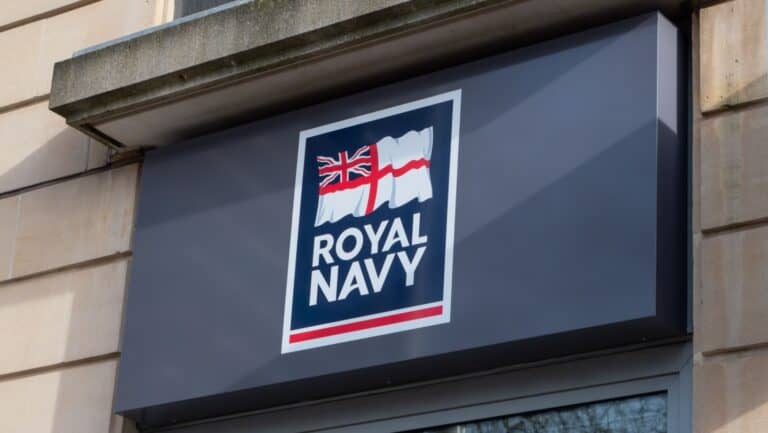Combating Racism
Ahmed Al-Nahhas on claims for racial harassment in the armed forces.
A series of recent cases have highlighted the issue of racial harassment in the armed forces. The purpose of this article is to consider this worrying trend, as well as explore some of the legal aspects of bringing a civil claim for harassment for service personnel. While these issues are discussed in the context of military claims, some principles will apply equally to cases involving civilian clients, as well as those involving discrimination for other protected characteristics.
The problem
For the majority of my career I have acted exclusively for service personnel, veterans and reservists from a variety of backgrounds, including having conduct of many cases involving harassment against the Ministry of Defence (MoD). After many such cases, you invariably start to question whether this sort of behaviour is to be expected in the military and whether the right lessons are being learned. Unfortunately, I would be hard pressed to find one client from an ethnic minority background who had not experienced discrimination on some level during their service. The facts in these cases can vary greatly, from those involving direct discrimination, such as offensive language and assaults, to those more insidious examples of racism, such as career fouling and failures to promote.
Here are a few recent examples of high-profile cases:
- In September 2019 former paratroopers Mr Zulu and Mr Gue brought successful claims for discrimination. An employment tribunal found that one of their colleagues drew highly offensive images and remarks on their photos, including swastikas and Hitler moustaches, and found that no reasonable steps had been taken to protect them from such harassment.
- In November 2019 Mr De Kretser, my own client and a former Reservist, brought a claim in harassment against his superiors and colleagues who allegedly belittled, bullied and ridiculed him because of his mixed ethic origins. The defendant argued, among other things, that such behaviour should be treated as harmless ‘banter’. The case settled on the final day of trial in the High Court.
- In December 2019 Mr Date, a veteran of the wars in Kosovo, Iraq and Afghanistan, succeeded in his claim for racial discrimination in the employment tribunal after his superiors confused him with the only other black soldier in his unit.
Making a complaint – the first step
The service complaints system is the military’s equivalent of a civilian grievance process and will be the first step in trying to secure a remedy for your client. The purpose of the system is: ‘to provide service personnel with a process that is fair, effective and efficient, through which they can have valid grievances on matters relating to their service in the Armed Forces addressed, and can seek redress’. The system is governed by the MoD’s own regulations: JSP 831 Redress of Individual Grievances: Service Complaints, which sets out the means by which complaints can be raised under the powers of Sections 334 to 339 of the Armed Forces Act and its associated statutory regulations. Put simply:
- Raising a complaint involves filling out a form and submitting details of the complaint to a superior, who will determine whether the complaint is raised in time and, if so, will commence an investigation.
- A complaint must be submitted within three months of the incident which is the subject of the complaint. There is a broad discretion to allow complaints out of time, but sound reasons must be given for any delay.
- There is a right to appeal to an appeal body and then again following the conclusion of any appeal by application to the Service Complaints Ombudsman for the Armed Forces (SCOAF).
- All service complaints are meant to be concluded within 24 weeks, but this remains more an aspiration than a reality.
- There are a broad range of remedies for a successful complaint, including reinstatement, punishments or compulsory education handed out to respondents of complaints, and consolatory compensation. The latter is uncommon and will rarely amount to an accurate reflection of losses.
- Legal expenses are not normally recoverable. In fact lawyers are not normally permitted to become involved in the service compliant process, although complainants can request a legal representative to be present at hearings.
Unfortunately, the process has historically been riddled with delays and some complaints have taken years to conclude, with many criticising the lack of impartiality and transparency within the system.
The Ombudsman has the responsibility for providing independent oversight and has powers equivalent to a High Court. They are able to review service complaint decisions where, for example, there has been undue delay, maladministration or the substance of a decision is wrong. However and importantly, the Ombudsman’s decisions are not legally binding on the MoD – and I have had conduct of a number of cases where a client has concluded a lengthy service complaint by successfully applying to the Ombudsman, who finds in their favour, only to have the Ombudsman’s recommendations completely ignored by the MoD in the subsequent civil claim.
This is not just demoralising for a successful complainant, who may have waited many months or years to reach this point, but it also undermines the Ombudsman’s position entirely. Most employees think twice before raising a complaint with their employers, because they fear negative repercussions from them and/or their colleagues. This is magnified for service personnel, perhaps because of the cultural stigma attached to ‘complainants’, but also because of what is at stake in respect of their lengthy service careers and high-value pensions. In fact, the Armed Forces Continuous Attitude Survey of 2019 found that 93% of those personnel subjected to bullying, discrimination or harassment did not raise a formal service complaint and 57% of those said that this was because they did not trust that anything would be done about their case. Many also fear being victimised and ‘labelled’ for raising a complaint. So when taking on a case, you should know that it has probably taken your client real courage and determination to step forward.
Bringing a civil claim
Service personnel are servants of the Crown and are not ‘employees’ in law. Their legal rights are heavily curtailed; for example, they are not permitted to bring a claim for unfair dismissal or for breach of contract. Despite this, it is well established in the common law that the MoD owes service personnel a duty of care analogous to that of an employer. Generally, where a service person has encountered harassment and/or discrimination, they will have recourse to a number of causes of action:
1. A claim for discrimination in the employment tribunal under the Equality Act 2010, where they can prove that they have been treated less favourably because of a protected characteristic, e.g. their race or religious belief. Time limits for most tribunal claims are normally three months.
2. A claim in negligence in the County or High Court, where they can prove an act or failure to take reasonable steps has caused them injury and loss.
This might include, for example, a claim for stress at work where a service complaint has been handled so badly so as to cause further harm to a complainant. Time limits for negligence claims are normally three years from the date of any injury.
3. A claim under Section 1 of the Protection from Harassment Act 1997 (PHA), again in the County or High Court.
The Act does not provide a definition for harassment and you will need to look to the common law for guidance, but this will normally require proof of behaviour on at least two occasions (e.g. a ‘course of conduct’), which is targeted at the claimant, calculated in an objective sense to cause alarm or distress, and which is objectively judged to be oppressive and unreasonable. A claim can be brought within six years of the first incident of harassment.
Tips for claimant lawyers
As a claimant lawyer you must have a clear strategy from the outset, otherwise claims involving service complaints can become risky and uneconomical for many reasons. Some claimants may wish to bring the above claims in tandem. They will have to avoid the risk of an abuse of process; they will not normally be able to issue in both the employment tribunal and the civil courts in respect of claims that relate to the same facts, nor will they be entitled to recover twice in respect of the same losses.
Importantly, in respect of claims in the employment tribunal only, they may be prohibited from bringing a claim unless they have first raised a formal service complaint. Whichever claim your client pursues, they will need advice at an early stage on which route is most advantageous to their particular case. In this respect, you might bear in mind that there are some distinct advantages to proceeding under the PHA:
- Your client would not have to show foreseeability, which is a prerequisite of any claim in negligence.
- They would not have to prove that they have suffered a diagnosed psychiatric condition and would be entitled to claim damages simply on the basis that they have suffered anxiety/distress. But they may have difficulty establishing significant losses on this basis alone.
- Unlike a claim for discrimination in the employment tribunal, the harassment does not have to be related to a protected characteristic e.g. it can relate to any bad behaviour, whatever its nature or purpose.
- Section 4 of the Act provides for a limitation period of six years, which is a considerable advantage to claimants whose common law and employment tribunal claims may have expired.
Some clients will come to you while still being harassed. You may need to advise them to raise their service complaint promptly, given the short time limit. Normally, you will want this to be determined first before pursuing a civil claim, because the complaint will precipitate a thorough investigation, evidence will be gathered and statements taken from all parties and witnesses. Such evidence might be difficult for you to obtain.
However, once underway, you will have little or no control over the process or investigation, which will introduce many unknowns and risks, as well as create delays. In other cases, clients may approach you having been disappointed with the outcome of their service complaint. By that time, depending on what stage they may have reached, many months or years may have passed since the original offending act(s) or behaviour. They may have limitation issues in respect of any or all of the claims that you identify and you will have to decide tactically whether to take immediate steps to issue their claims and/or notify the MoD of any prospective claim. Where you are forced to take action to protect your client’s position by issuing a claim, you may want to seek to agree a moratorium, an extension of time for service, or a stay of the proceedings, so as to allow for any ongoing service complaint to conclude. Again, this will introduce delays and may not be the best route to applying pressure on the defendant.
Scale of military racism
The issue of racism has been known to the MoD for some considerable time. The current (and first) Ombudsman, Nicola Williams, has undertaken extensive annual reviews, which among other things have found that Black, Asian and Minority Ethnic (BAME) personnel are overrepresented among complainants.
The latest statistics recorded in 2018 show that while BAME personnel made up only 7% of the total strength of the Armed Forces that year, they also made 13% of the admissible service complaints. In addition, 39% of their complaints concerned bullying, harassment or discrimination. This is in fact an improvement on previous years, but the statistics remain a real concern and, worryingly, women are also overrepresented in the system.
Throughout her tenure, the Ombudsman has made over thirty recommendations for changes to the service complaints system, very few of which have been implemented and some of which have been ignored. For example, she recommended that the MoD commissions a study by the end April 2018 to determine the root causes of the overrepresentation of BAME personnel in the service complaints system and that appropriate action is taken to try and redress this by the end of December 2018. No such study has been carried out that I am aware of and I wonder what it would uncover – understanding the problem will be the first step to solving it! The MoD has, from time to time, implemented well – meaning studies, but these have not resulted in any significant changes in policy or procedure.
In its latest internal report by Air Marshal Wigston, published in July 2019, the MoD found that while the majority of service personnel behaved appropriately and with respect to one another, there remained an unacceptable level of inappropriate behaviour in some areas. These behaviours included discrimination against both women and ethnic minorities. The report made 36 recommendations to improve behaviour within the forces, including the establishment of a new ‘Service Authority’, which would be responsible for behavioural policy across the armed forces and house a specialised service complaints team to handle sensitive and complex cases of bullying and harassment. It is still not known what steps if any are being taken by the MoD in response to the report’s many recommendations.
Opinion
Most lawyers acting for service personnel will tell you that racism in the armed forces is a significantly underestimated problem. It is perhaps less of a problem today than it has been in the past, but it is a problem that remains unsolved. I have no doubt that the MoD wants to extinguish racism in its ranks and I do not believe that the organisation is inherently racist.
The codified values and standards of each service, whether in the British Army, Royal Navy or RAF, make it absolutely clear that there is no place for bullying, harassment or discrimination in the services. But the MoD has a history of sweeping cases under the carpet, ‘downplaying’ racist behaviour and ignoring the recommendations of its own Ombudsman, who continues to report that the service complaints system is ‘not efficient, effective or fair’. This attitude must change and action must be taken. The MoD must start by listening to its own Ombudsman. Service personnel are some of the most deserving members of our society; they deserve a complaints system that works. One that protects complainants and provides swift and transparent justice. Until then, they will have to look to the courts and tribunals for effective remedies.
The original article entitled ‘Combating Racism’ by Ahmed Al-Nahhas, first appeared in the February 2020 edition of PI Focus. It is republished here with their kind permission.










